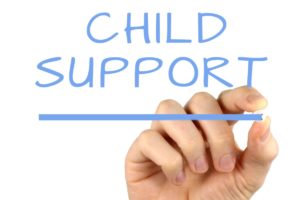WHAT IS CHILD SUPPORT?
Child Support is court-ordered payments, typically made by a noncustodial parent, to support one’s minor child or children.
IF I AM INCARCERATED, DO I NEED TO PAY CHILD SUPPORT?
New Maryland Law on Child Support and Incarceration: Effective October 1, 2024, a new law in Maryland will provide assistance to parents unable to make child support payments due to any length of incarceration after that date. While relief for periods of incarceration before this date is limited, it is still possible.
For more information, contact your local child support office at 1-800-332-6347
WHAT DO I NEED TO DO TO QUALIFY?
Contact your local child support office and give them the following information:
- Your name, social security number and date of birth;
- Your state identification number (SID#), name and address of the institution where you are incarcerated;
- The date you were sentenced;
- The length of the sentence imposed by the court;
- Your address and phone number upon your release; and,
- The names of your children, the names of their parent(s), and your child support case number(s).
IS THERE ANY REASON WHY I MIGHT NOT QUALIFY FOR THIS RELIEF?
You do not qualify:
- If you are on work release;
- If you have sufficient funds to continue to make your child support payments; or,
- If you committed the crime with the intent of being incarcerated or otherwise becoming impoverished.
WHAT HAPPENS NEXT AFTER I CONTACT MY LOCAL CHILD CUPPORT OFFICE AND THEY FIND I QUALIFY FOR ASSISTANCE?
Your local child support worker will adjust your account to reflect that payments are not currently due and will not become due until 60 days after your release from incarceration. In addition, your local child support worker will adjust your account so that your arrearages balance will not increase while you are incarcerated and for 60 days after your release.
CAN CHILD SUPPORT PAYMENT AMOUNTS BE MODIFIED?
YES, but modifications or changes to child support do not happen automatically. To make a change, one of the parents must ask the court to change the existing child support order. This is done with a written “motion” or a formal request to the court. The circuit court will have free “motion” forms that you can fill out.
The court that makes the original child support award can modify the order if either parent’s situations changes “materially”. “Material” means that the change matters and is relevant to the situation.
Either parent (the parent who pays, or the person who receives the payment) may ask the court to change the order while the child is under age 18.
HOW DO I GET MY CHILD SUPPORT PAYMENTS MODIFIED?
There are two ways you can try to change a child support order.
- Once every three years, either parent has the right to ask the office of Child Support Enforcement to review the child support order for possible modification. If you request a review and modification, you should put your request in writing and keep a copy for yourself as proof that you made the request. Explain why you are requesting the review of your order, sign and date it, and include your child support case number and other identifying information on the request.
- At any time, either parent can file a motion to modify an existing child support order. You should file the motion in the circuit court that issued the child support order. A family law self-help center in the circuit court can often provide forms and limited help to people without a lawyer who are filing court documents.*
The form to do this can be found here: Child Support Modification Petition
*In Baltimore City, motions can be filed in the paternity division or family division of the clerk’s office, depending on how the original order was created. You may need to check both offices.
Clerk’s office, paternity division, Mitchell Courthouse, Room 441, (410) 333-3738
Clerk’s office, family division, Courthouse East, Room 462, (410) 333-3711
Pro se office (help for people without lawyers), Courthouse East, Room 232
WHAT SITUATIONS MIGHT CAUSE A CHANGE IN CHILD SUPPORT PAYMENTS?
In order to change court-ordered child support payments, you must show that things have changed significantly since the support order. Circumstances may change many times during the years of child support payments.
For example, in Maryland, if one parent’s income has changed (either gone up or down) by at least 25%, this is usually enough of a change to require changing the support order and you can request a modification.
The child support order can also be changed if the child’s needs change, such as if the child becomes sick or disabled, the court can increase the amount of support.
Sometimes, time passing alone changes circumstances. For example, as a child grows older, it becomes more expensive to buy clothes, food, and other items. More expenses can justify increasing child support payments.
Support can also be reduced if the paying parent can show why this would be fair. For example, support payments may be reduced if the parent who has custody over the child inherits money, gets a large raise, or otherwise has an increased ability to support the child. Or, if the paying parent loses his or her job, the court can be asked to reduce support during the period of unemployment.
Other examples of changed circumstances can include becoming disabled or being sentenced to jail or prison.
IS IT OK TO AGREE VERBALLY TO CHANGE THE CHILD SUPPORT AMOUNT?
NO. Even if you agree to a change in payments with the other parent, it will not be binding.
Do not make the mistake of modifying child support based on an oral agreement, or otherwise agreeing to a payment that differs from the court order. This can lead to future problems.
The problem with oral agreements is that they are often unclear and you may not realize it at the time. People’s memories and understandings of the situation may differ. Any agreement that you make to modify child support should be put in writing so that there is no confusion later on.
IF I QUIT MY JOB, CAN I HAVE MY CHILD SUPPORT PAYMENTS REDUCED?
VOLUNTARY IMPOVERISHMENT
A parent cannot avoid his or her child support obligation by not making enough money on purpose.
This is called “voluntary impoverishment.” The parent’s conscious choice to not make enough money to pay the ordered child support does not have to be about avoiding child support – it can be for other reasons, too.
If the court finds a parent owing child support has “voluntarily impoverished” himself or herself, the court may “impute income” to the parent. This means that the court will act as if the parent has an income when determining the child support payment.
To decide whether to “impute” income to the parent, and how much, the court will look at the parent’s physical condition, level of education, the timing of any employment changes, the relationship of the parties, the parent’s efforts to obtain a job or training, past work history, and other factors.
Maryland courts do not consider a parent being in jail or prison to be “voluntary impoverishment” unless the parent committed the crime intending to avoid paying child support. Willis v. Jones, 340 Md. 480 (1995)
DOES THE CHILD SUPPORT ORDER STILL EXIST WHILE I AM INCARCERATED?
Yes. The child support order still exists even while payments are not due because you are incarcerated. It is just suspended.
Sixty (60) days after you are released, you must begin paying child support payments again, as the child support order requires. You will not owe the payments you missed while you were in jail or prison, but the same child support payment will begin 60 days after release.
WHAT HAPPENS IF I DO NOT PAY MY CHILD SUPPORT PAYMENTS AFTER I AM RELEASED?
Every parent has the legal duty to support their children and Maryland takes this very seriously.
Failure to pay child support, or failure to pay on time, can trigger the Office of Child Support Enforcement to take any of the following measures to resolve the issue:
- Asking the court that you be held in contempt.
When held in contempt, judges can, and will, put you in jail for non-payment of child support. - Garnishing your employment, unemployment, or worker’s compensation wages.
The law in Maryland allows for the full amount of child support to be garnished, as well as a portion of any arrearages owed. - Garnishing your bank accounts.
The OCSE will go after any money you might have in a checking or savings account to which your name is attached. Accounts jointly held with another person are not protected from garnishment to pay child support. - Intercepting any federal or state income tax refunds.
If you owe child support payments and you expect to receive a tax refund, your refund will be sent to the Office of Child Support Enforcement to be applied to your child support payments. - Intercepting lottery winnings.
You hit the lottery! Not so fast . . .If you hit the Mega Millions, Powerball, or have any other lottery winnings to which you have to submit to the Maryland Lottery in order to receive your winnings, the lottery office will first ensure that you are not on the list for unpaid child support before issuing any winnings. - Reporting unpaid child support to the three credit bureaus.
- Reporting unpaid child support to the MVA
This can result in the suspension of your driver’s license. - Reporting unpaid child support to professional and recreational licensing centers.
- Denying the reissuance of a passport.


